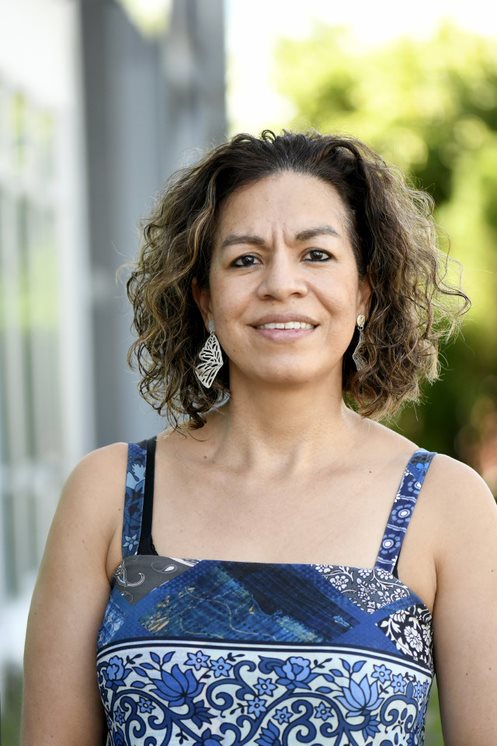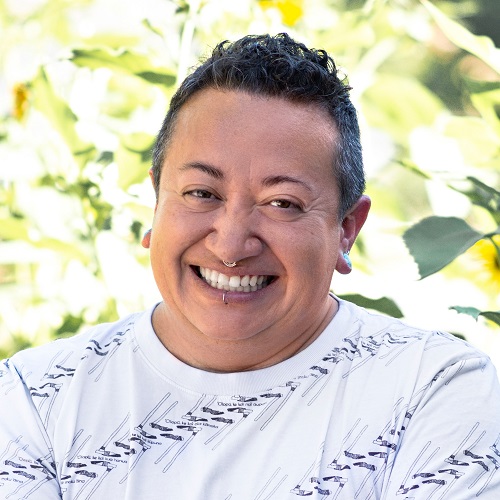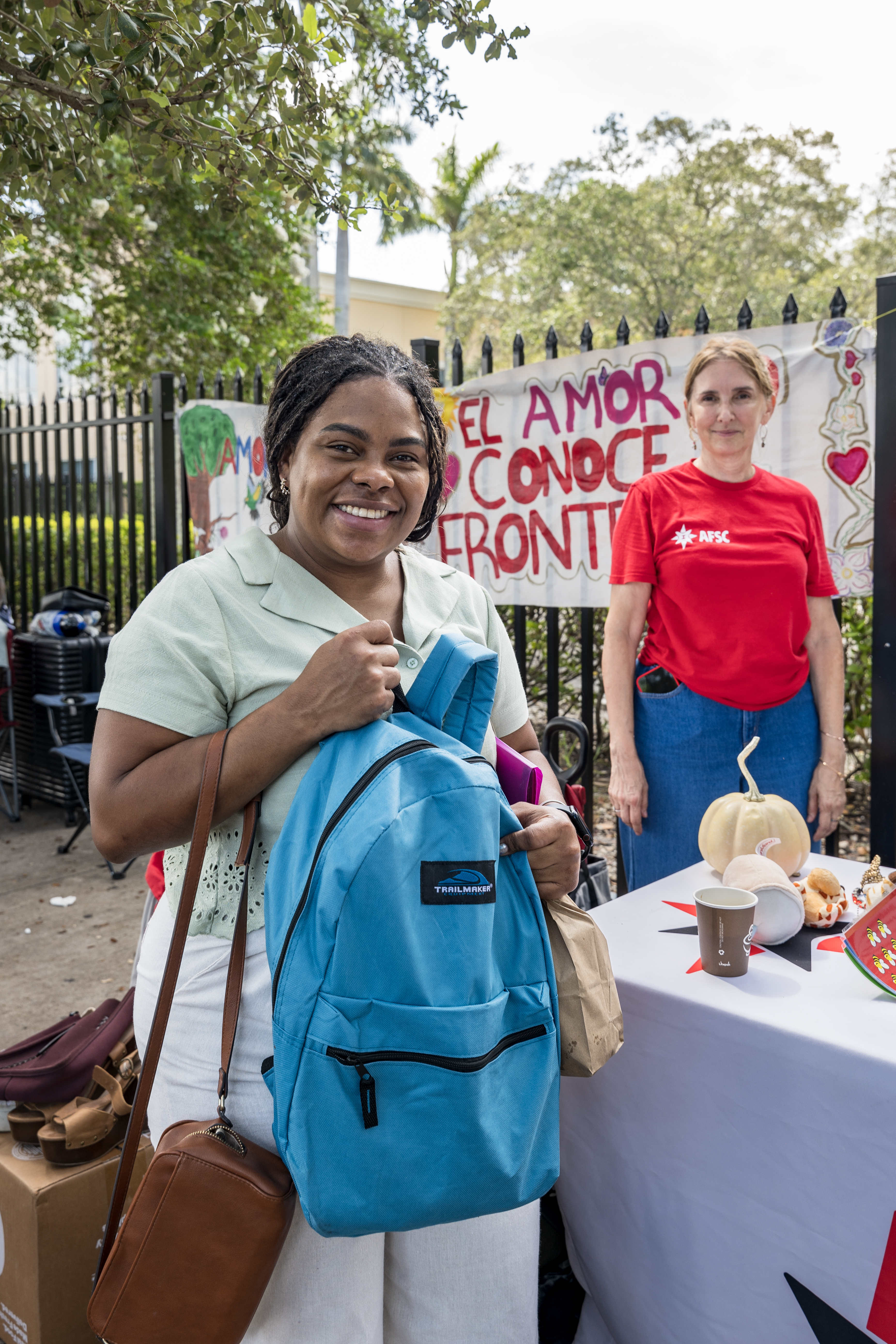
Every week, AFSC staff and volunteers gather outside the ICE facility in Miramar, Florida. They offer moral support, information, and other aid to people navigating the immigration system. Photo: Adam Barkan
Immigrants make our communities stronger. They are neighbors, workers, students, business owners, and friends. But today, immigrants are being detained and disappeared. Families and neighborhoods are being torn apart. Government raids are disrupting our communities and creating a culture of fear.
As a Quaker organization, AFSC believes in the inherent worth and dignity of every person. For decades, we’ve worked alongside immigrant communities. We’re inspired every day by their courage and resilience—and the commitment of all who stand with them.
Here, AFSC staff describe what becomes possible when community members band together.
Organizing to keep loved ones together in Colorado
The call came into our 24-hour hotline on a Wednesday morning: Immigration and Customs Enforcement (ICE) agents were conducting a raid at Denver's Cedar Run Apartments. The Colorado Rapid Response Network quickly mobilized volunteers to the scene. Using bullhorns, our team called out to residents: You have the right to keep your doors closed! There’s no warrant! You have the right not to say anything!
This is just one example of how we’re protecting immigrant communities facing ICE raids. Here in Colorado, we have a strong immigrant rights movement led by the people most impacted by these issues. It includes congregations, community groups, and allies. AFSC is proud to have been a part of this movement for the past 70 years.
Today, the heart of our work is the Colorado Rapid Response Network. The network operates a 24/7 hotline where people can report suspected ICE activity. We rely entirely on volunteers who serve as dispatchers, confirmers, and legal observers. Our network of volunteers is now 4,500 strong.
AFSC staff train and onboard all dispatchers, who field calls all day long, sometimes up to 30 calls per hour. Volunteers are then sent to verify reports of ICE activity. If we can confirm the report, we notify the community through Facebook as quickly as possible. Our efforts help filter out mistaken reports that might cause unnecessary panic.
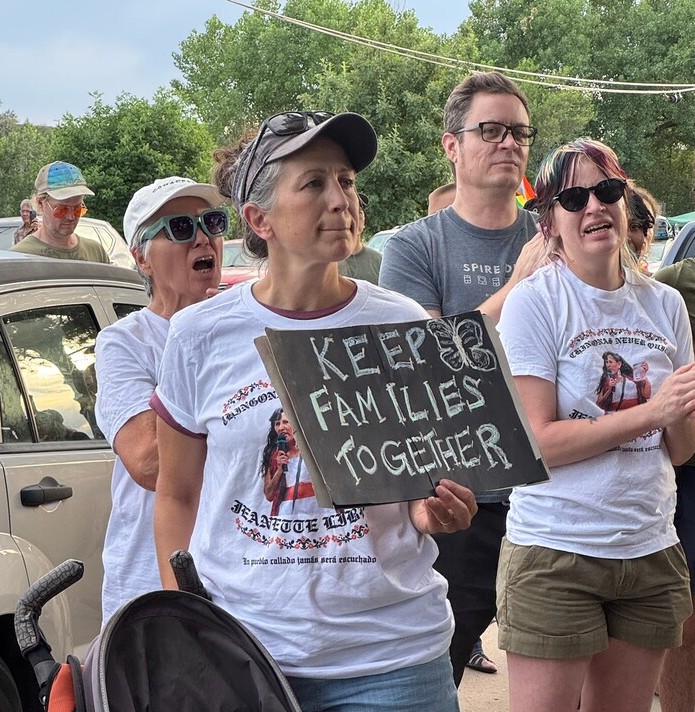
A protest against immigrant detention in Aurora, Colorado. Photo: Gabriela Flora/AFSC
When volunteers witness an ICE raid, they are ready to support community members. We let them know about their rights, as we did at the Cedar Run Apartments complex. If a person is detained by ICE, we connect them to legal representation. If their family needs other kinds of support, we get them that help—everything from food to rental assistance. Volunteers also accompany immigrants to court proceedings, providing transportation and interpretation services.
Across Colorado, we’ve helped hundreds of immigrants prepare for encounters with ICE through Know Your Rights workshops led by members of AFSC's Not1More Deportation Table. The group is made up of immigrants and family members who have faced deportation. We also help people create emergency family safety plans in case a loved one is detained or deported.
Today, more people are volunteering than we have seen in years. Local and state officials are also taking bold action, thanks to community advocacy. The state legislature has introduced a bill to make schools, health care centers, and churches off-limits to ICE. And the Denver Public Schools system is taking steps to keep ICE off its campuses.
Each day, we collectively strengthen our network of immigrants and allies working together for justice. That morning at Cedar Run Apartments, our volunteers’ bullhorns carried a clear message: When people unite, we can protect one another.
Representing immigrants in New Jersey in unprecedented times
Recently, our immigration attorneys here in New Jersey got incredible news: a mother and daughter we had been representing had just won their asylum case. In today’s political climate, wins like this don't happen very often—which made the victory even more meaningful for one family seeking safety and refuge in the U.S.
For decades, AFSC has provided free legal representation to immigrants in New Jersey, handling over 2,000 cases each year. Moments like these remind me why we do this work.
Since the start of the Trump administration, we’ve seen a huge increase in arrests and detention. People who have lived in New Jersey for years are being arrested at routine ICE check-ins. Two of my clients were arrested right in front of me when they went to an interview with ICE. Both women were transferred to a detention center in Louisiana without warning. This made it much harder for us to talk with them and for their families to stay in touch.
The Trump administration’s plan is clear: make immigrants so scared that they give up their legal cases entirely. AFSC is responding by adapting our approach. We’re helping clients and families prepare for possible arrests, building rapid response networks, and working around the clock to get people released from detention. With the two women I represent, we had made emergency plans with their families ahead of time, which helped us act fast. We were able to get court hearings and get them released within two weeks. Today, they are safe at home with their families. But their struggle for permanent protection in the U.S. continues.
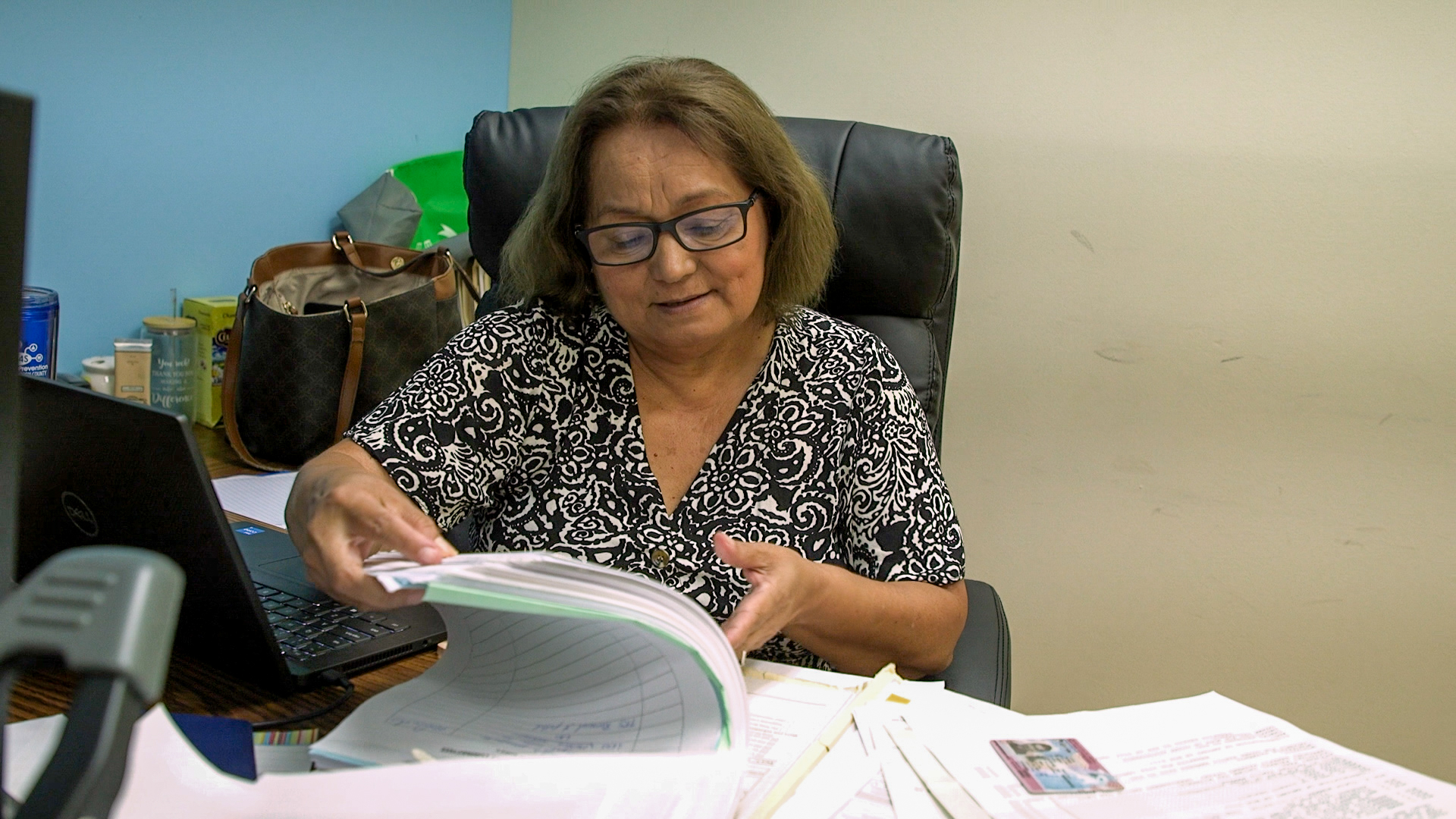
AFSC Legal Assistant Blanca Molina in New Jersey. Photo: Nathaniel Doubleday/AFSC
The need for free legal counsel for immigrants is huge. Last year, AFSC and partner organizations in New Jersey could only help 42% of those detained in the state. At the same time, research has shown that immigrants with lawyers are 10.5 times more likely to win their cases.* And with more detention centers opening in the state, we know many more of our community members will be locked up and need representation.
But that doesn’t mean we’ll ever give up. I tell our legal team: Do what you can. Yes, we'll lose some cases, but we’re also going to win. We’re going to save lives. We’re going to keep families together. Even helping one person makes a difference for years to come. It means one person gets to stay with their family, to help our communities, to make this a more compassionate society.
We’re building a network of care that will outlast any administration.
Supporting migrants on their journeys in Latin America
Last April, I visited a place few outsiders had seen in months: Costa Rica’s immigration detention center. I was part of a group representing the only organizations allowed inside the facility since February. That’s when 200 migrants—including 80 children—arrived on deportation flights from the United States.
These migrants weren’t Latin Americans, but people from Afghanistan, Russia, Armenia, Iran, China, and other countries. Most had not been told where they were being taken. Many were separated from families still in the United States.
Sitting on the floor in 88-degree heat, we talked to 24 people from 13 countries, using Google Translate to communicate across eight languages. One woman typed into her phone: “In the U.S., we were locked in a room for more than 20 days. They mistreated us, handcuffed us, lied to us. We’re trapped. We can’t go back. Please help us.”
When AFSC and our partners visited the detention center, we helped bring public attention to the plight of these migrants. Other organizations also pressured the government to uphold their rights. Our coordinated advocacy resulted in an important victory: the Costa Rican government granted temporary humanitarian status permits to all who were detained. Authorities returned their documents and allowed them to move freely in the country.
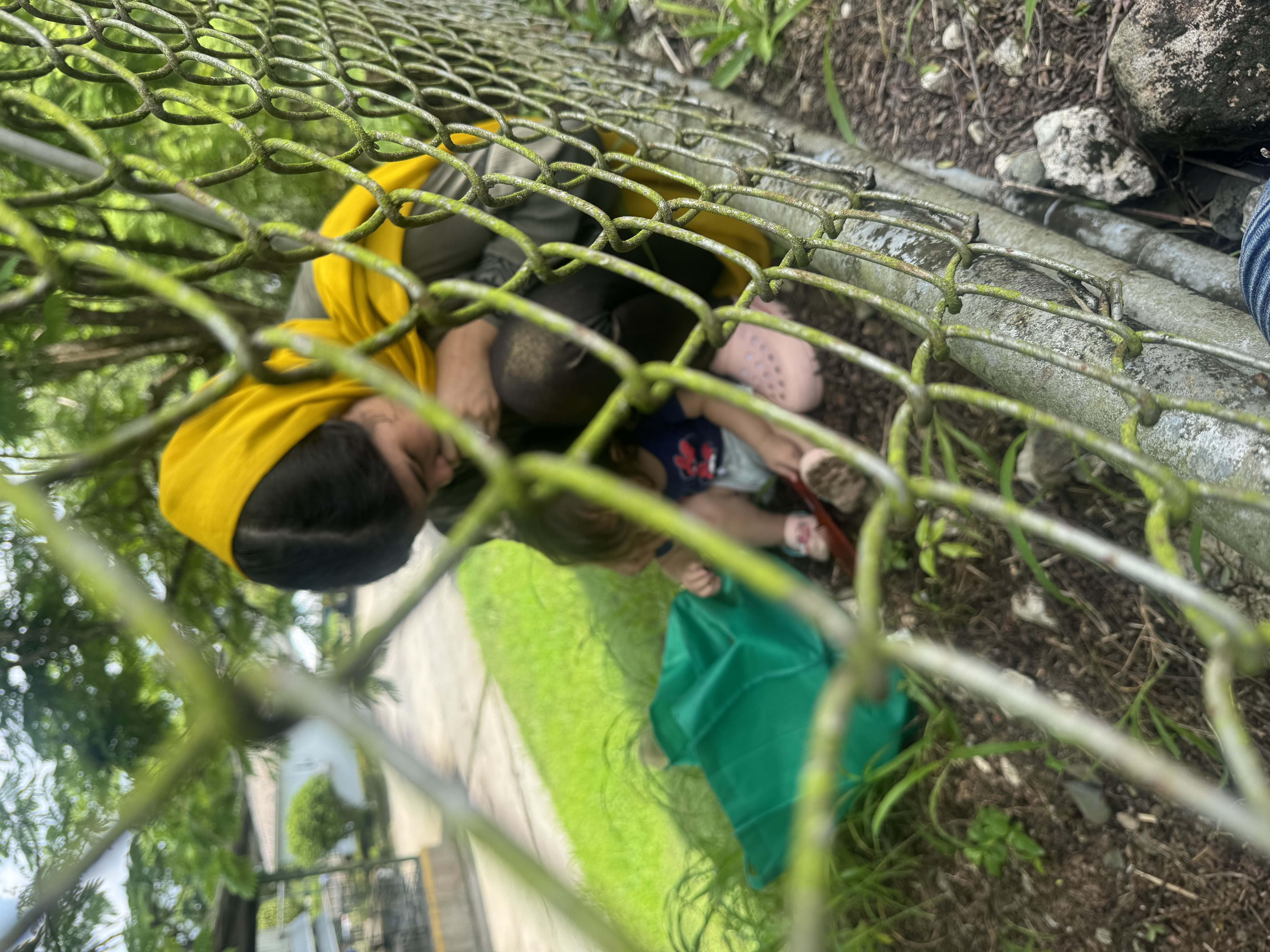
A mother and child who were detained in Costa Rica after being deported from the U.S. Photo: Marcia Aguiluz Soto/AFSC
AFSC played a crucial role in securing their freedom and supporting their resettlement. We connected them with legal help, health care services, and other basic needs. We also helped secure safe housing for migrants, working with local Quakers who offered to host several migrant families.
Like many people around the world, these migrants face impossible situations. They can’t return to their native countries because of persecution and violence. They have been denied their right to seek asylum in the U.S. Yet they face enormous barriers to building new lives elsewhere. They are stuck in a system that treats human beings as political pawns rather than people deserving of dignity and protection.
Beyond our advocacy, AFSC provides humanitarian assistance to the dozens of migrants who arrive daily at Costa Rica’s southern border. Working with local partners, we distribute food, water, and other aid. We provide information and resources to help migrants understand their rights. And we document the human rights violations they face during their journeys.
This humanitarian relief is essential, but it is not enough. We need systemic change that recognizes the humanity of all who seek safety. We must work for a world where migration is a choice, not a necessity. We must ensure that everyone has what they need to thrive, wherever they choose to call home.

